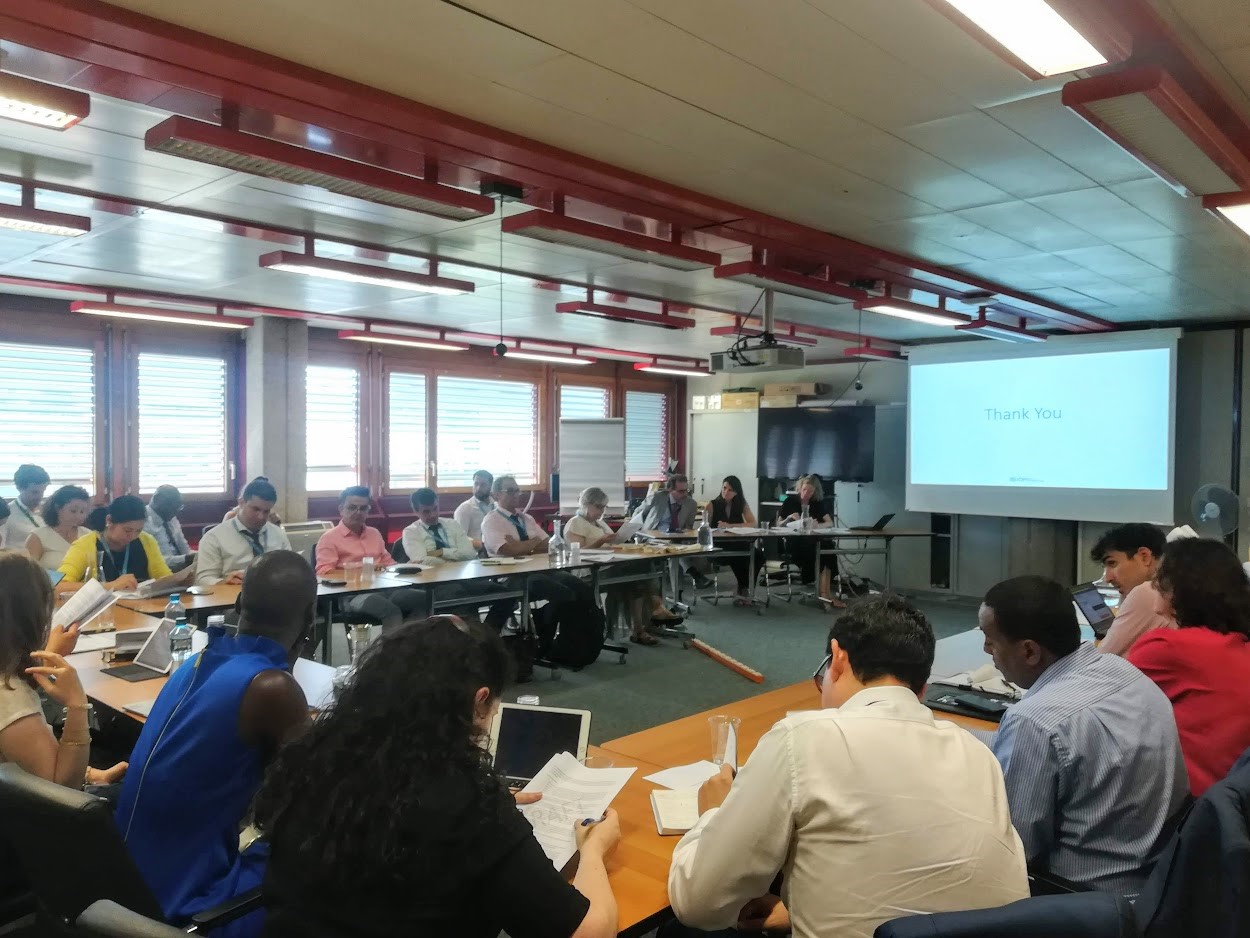October 2019
 Cécile Riallant, Head of the Migration and Sustainable Development Unit International, IOM Headquarters, Geneva, criallant@iom.int
Cécile Riallant, Head of the Migration and Sustainable Development Unit International, IOM Headquarters, Geneva, criallant@iom.int

IOM, the UN Migration Agency, has developed a Strategy on Migration and Sustainable Development designed to maximise the potential of migration to achieve sustainable development outcomes. The strategy builds on the organization's forthcoming Vision 2025, which recognises that when well-managed, migration can be both a development strategy and development outcome. The strategy directly responds to recent changes in both the global governance of migration and the UN Development system to foster increased collaboration in support of the fulfilment of the 2030 Agenda.
Migration shapes our world at every turn, intrinsically linked with global trends such as globalisation, digitalisation, and urbanisation. As a result, how we govern migration has significant impact on the future of our societies and economies. The inherent link between migration and development is recognised in the 2030 Agenda for Sustainable Development, not only in Target 10.7 which calls for "orderly, safe, regular and responsible migration and mobility of people, including through the implementation of planned and well managed migration policies", but also with references to migrants and migration across the 17 Sustainable Development Goals (SDGs). Indeed, we cannot achieve the SDGs without due consideration of migration.
The inclusion of migration in the 2030 Agenda for Sustainable Development presents a momentous opportunity to assess the impact of migration on a range of development issues, as well as to better understand how development can impact on migration and migrants. Existing global frameworks on Migration and Development, including the 2030 Agenda, present the opportunity to leverage the positive relationship between migration and development serving as a roadmap to help achieve the migration dimensions of the SDGs. The UN Development System reform, influenced by these opportunities, brings substantial change to the way the UN operates in-country. Most notably, the reform places the 2030 Agenda as the central and overarching framework guiding UN development activities.
Within this context, IOM bears a unique responsibility to leverage these opportunities. As coordinator and secretariat of the recently established UN Network on Migration (UNNM), IOM plays a key role in shaping global discussions on migration and sustainable development. The Strategy serves as an important tool to respond to the current realities, promoting increased collaboration across the UN development system and ensuring that UN system activities maximise the development potential of migration.
The IOM Migration and Sustainable Development Strategy has three main outcomes that drive efforts and shape deliverables. The three outcomes are: human mobility is increasingly a choice; migrants and their families are empowered as development actors; and migration is increasingly well governed. The strategy recognises mega-trends related to migration such as increased transnationalism connected to globalization of economies, demographic imbalances between regions, the digitalization of work and the rapid urbanization of the world. In addition, the strategy accounts for three cross-cutting issues: (i) inequalities; (ii) environment and climate change; and (iii) gender, understanding that systematically addressing these issues is critical to sustainable development.
The strategy is the result of a comprehensive consultation process that utilized an organization-wide approach in its development, as well as included dialogues with UN partners and key development cooperation actors including IOM member states. A finalised strategy, incorporating comments received through the consultative process, will be presented at the IOM Standing Committee on Programmes and Finances in October 2019.
IOM has a long history of working with governments and a variety of other actors to enhance migration governance efforts and maximise the development potential of migration. Building on decades of experience in the field, IOM has developed many capacity development tools that help authorities understand the linkages between migration and development outcomes, including the recent publication Migration and the 2030 Agenda: A Guide for Practitioners. Fulfilling the 2030 Agenda's pledge to "leave no one behind" and endeavour to "reach the furthest behind first" requires comprehensive understanding of the multidimensional links between migration and development, and a whole-of-government approach that provides cross-sector policy solutions. Leveraging its rich/long experience and embracing new opportunities for collaboration and innovation, IOM is well positioned as the UN Migration Agency to help deliver on the global frameworks. The institutional Strategy on Migration and Sustainable Development marks the next step in achieving these shared objectives, providing a timely response to a pivotal moment in the global governance of migration.
